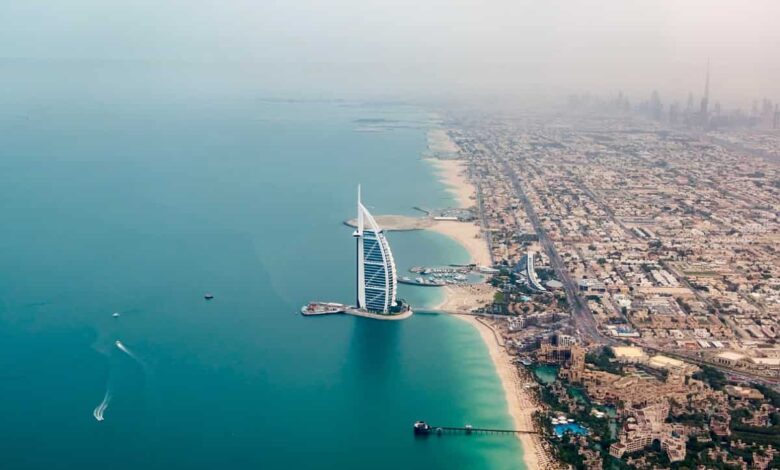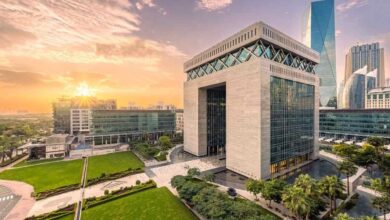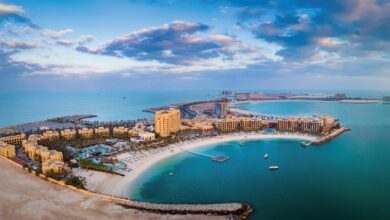
Dubai – An attractive Investment Haven.
Dubai emerged as an international hub for service industries such as IT and finance with the establishment of the Dubai International Financial Centre (DIFC) in 2004. Most people believe that oil is the primary source of revenue for Dubai. However, Dubai’s economy was built using only a moderate amount of its oil reserves to create the infrastructure needed for trade, manufacturing, and tourism. Most of Dubai’s GDP (over 95%) is non-oil based. So far, tourism generates 20% of Dubai’s GDP, with oil contributing less than 1% of the total GDP. With a promising growth rate of 6.1% in 2014, Dubai became one of the fastest growing economies in the Middle East.
Tax-implications:
The United Arab Emirates has been well-known for its zero-tax policies, attracting investors and businessmen from across the globe. It doesn’t levy any tax on individuals. However, a value added tax of 5% is levied on the purchase of goods and services along with an excise tax. Recently, the UAE observed a paradigm shift in its taxing regime. An introduction of 9% corporate tax for certain businesses has been a strategic move to increase the sources of income beyond the ambit of oil while allowing the startups to maintain liquidity during their initial stages.
The application of 9% corporate tax is limited only to those businesses with a turnover or gross income which exceeds AED 1 million per year, which is equivalent to about 270 thousand USD. However, this policy applies to both resident as well as non-resident natural persons conducting business activities in the UAE.
Wages or salaries paid to employees, personal investment income and income from real estate investments is not considered an income from a business or business activity, thus no corporate tax is levied. However, it is pertinent to mention that those real estate activities which are conducted through a license or requiring a licence from a licensing authority in UAE is excluded from the exemption. Also, the government entities, government-controlled entities, natural resource businesses, qualifying public benefit entities and qualifying investment funds, social security funds or private pensions are also exempted from corporate tax.
Businesses operating in free zones may also be eligible to get income tax exemptions if specific qualifying activities and transactions are fulfilled. These operations encompass a variety of activities, including as managing finances and investments, manufacturing and processing materials or goods, reinsurance services, holding shares and other securities, and owning, operating, and managing ships.
When making an investment, international investors need to be aware of any Double Tax Avoidance Agreements (DTAA) that may exist between their home country and the country of investment. The primary goal of these agreements is to prevent double taxation, which occurs when identical taxes are levied on the same taxpayer in two different nations on the same tax base. This practice negatively impacts cross-border trade, capital transfers, and the interchange of products and services. With the majority of its trading partners, the UAE signed 137 DTAs in an effort to further its development objectives.
Foreign Direct Investment (FDI):
Over the past few years, the United Arab Emirates (UAE) has made great strides toward establishing itself as a desirable location for foreign direct investment (FDI). The United Conference on Trade and Development released the World Investment Report 2023 (WIR), which states that in 2022, the United Arab Emirates saw US $22.7 billion in FDI inflow, a 10% increase from the year before and more than any other Gulf Cooperation Council (GCC) nation.
The UAE’s strategies to boost FDI include refraining from imposing taxes or making restrictions on the repatriation of capital, allowing free movement of labor into the country with low barriers to entry and offering FDI incentives. In line with various initiatives to encourage foreign investment in the UAE, it was permitted that the global investors can have 100 per cent foreign ownership of local businesses in the UAE mainland except for those enumerated in the negative list. These include:
- exploring, prospecting and producing the petroleum;
- investigation, security, military sectors and manufacture of weapons, explosives, military equipment, devices and uniforms;
- banking and financing activities; insurance services;
- Hajj and Umrah services;
- services related to fisheries;
- post, telecommunication and auto-visual services;
- services of land and air transport;
- printing and publishing services;
- commercial agent services;
- medical retail trade such as private pharmacies; and
- poison centres, blood banks and quarantine centres.
There are typically three primary channels for foreign investment in the United Arab Emirates, contingent on the kind of activity the investor plans to undertake: i) Positive list activities that allow for 100% foreign ownership of onshore firms; ii) 100% ownership through entities located in the UAE free zone; and d) onshore entities that are 51% Emirati and 49% foreign owned.
However, the “Commercial Companies Law,” Federal Decree Law No. (26) of 2020, repeals the third avenue. Gulf Cooperation Council (GCC) or UAE nationals are no longer needed to have a majority stake in onshore UAE enterprises. Additionally, local offices of foreign corporations are no longer required to have a UAE national or a UAE-owned company function as an agent. UAE joint stock companies are exempt from having an Emirati citizen chair or have an Emirati citizen make up the majority of their board.
With the introduction of “Reduction Program” in 2021, the investments and ease of doing business was facilitated in Emirate by reducing the procedure and cutting fees. Also, certain executive regulations on entry and residence of foreigners were approved wherein the “Golden Visa” program was amended. By virtue of this amendment, real estate investors purchasing a property of no less than $5,40,000, entrepreneurs generating annual revenues of no less than $2,70,000 are eligible for the Golden Visa.
Key Sectors:
- Greenfield projects:
According to WIR, the UAE got the fourth-highest number of greenfield projects (997 total), an 84% rise from previous years, and has consequently become a popular investment destination for foreigners.
- Healthcare:
According to the Alpen Capital Report 2023, the UAE has the greatest compound annual growth rate of 7.4% in the GCC for healthcare spending, with spending expected to reach $30.7 billion by 2027.
- Renewable Energy:
The UAE government has approved an update to the National Energy Strategy (NES), which aims to triple the capacity of renewable power generation and increase clean energy’s contribution to energy generation to 30% by 2030, in line with hosting the COP28 International Climate Summit in 2023.
- Real Estate:
The total value of real estate transactions in the Gulf Cooperation Council (GCC) during January to October 2022 was $143.1 billion, a significant rise above the $136.9 billion done in 2021. With more than 48% of the total value transacted, the UAE stood out as a major player. The strong performance of the real estate industry in the United Arab Emirates can be partially ascribed to an increased need for opulent residential properties, which is impacted by the influx of foreign nationals who are opting to settle in the UAE.
- Stock Markets:
The ADX and the Dubai Financial Market (DFM) are emerging as compelling investment opportunities especially given the positive responsiveness to the global geopolitical and socio-economic unrest over the last few years.
The foreign investors can remit their investment in a number of ways so as to further facilitate the foreign direct investments. The tax increase on foreign remittance falls under the Liberalised Remittance Scheme (LRS). The Liberalised Remittance Scheme (LRS) indeed allows resident individuals, including minors, to freely remit up to USD 250,000 per financial year for any permissible current or capital account transaction or a combination of both.
The LRS covers a wide range of transactions categorized under current and capital account transactions. These include payments for imports and exports, investments in foreign stocks and real estate, setting up wholly-owned subsidiaries or joint ventures abroad, and more. The LRS is not available to entities such as corporates, partnership firms, Hindu Undivided Families (HUFs), and trusts. It is specifically designed for individual residents to facilitate their international transactions. There are no restrictions on the frequency of remittances under LRS. However, the total amount of foreign exchange purchased from or remitted through, all sources in India during a financial year should be within the cumulative limit of USD 2,50,000.
For the purpose of transferring money from India to Dubai, NRE account can be opened for the purpose of maintaining the income earned outside India with tax free interest (upto 7.60%) on Fixed Deposits. Both the principal amount and interest earned are freely and completely repatriable from India.
For transferring money from Dubai to India, Money transfer operators (MTOs) are financial companies (but usually not banks) engaged in cross border transfer of funds using either their internal system or using their collaborations with other international banking networks. Eg: Transferwise, Western Union.
The UAE-India Comprehensive Economic Partnership Agreement has reaped benefits in both India as well as UAE. UAE exporters now enjoy greater access to the Indian market as tariffs on more than 80% of products have been reduced or eliminated.
The reduction in tariffs makes UAE products more competitive in the Indian market and fosters bilateral trade. Secondly, this agreement establishes an open and non-discriminatory trade environment for cross border trade between UAE and India. Thirdly, the unnecessary technical barriers for UAE and Indian exporters have been removed under the CEPA. Fourthly, UAE companies are supported through a 10% price preference in government procurement tenders in the UAE. This incentivizes procurement from UAE-based companies and promotes their participation in government projects.
Osheeba Bashir, an independent practising corporate lawyer based in Kashmir. You can reach out to the author on osheebabashir00@gmail.com





